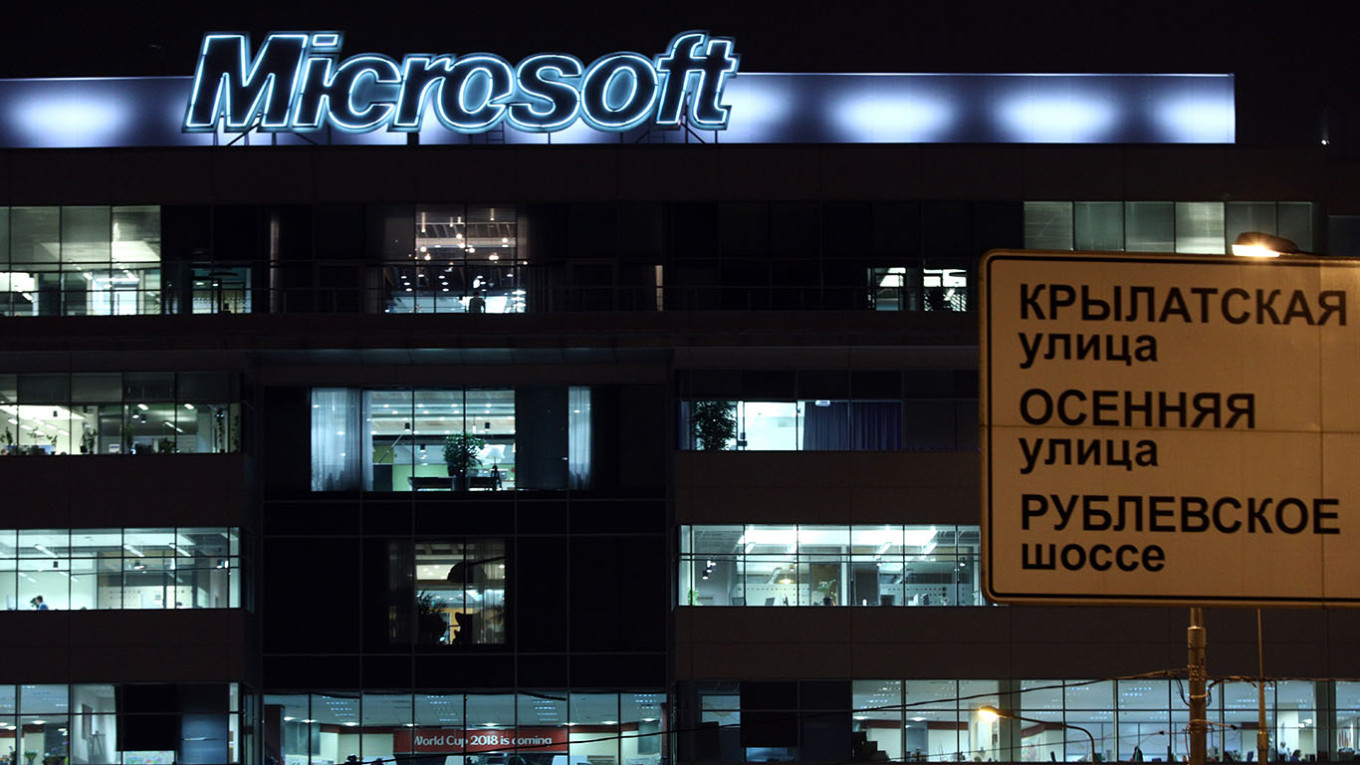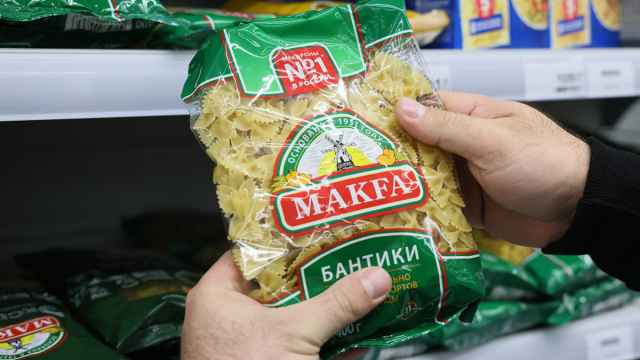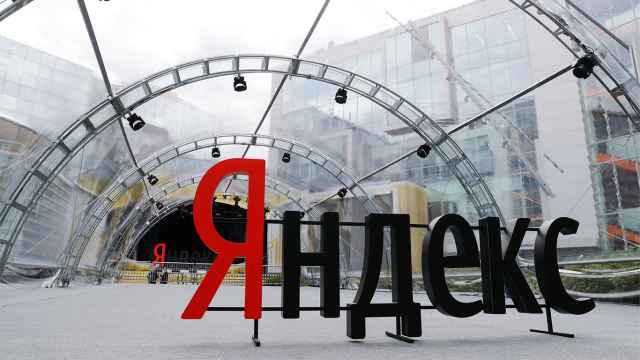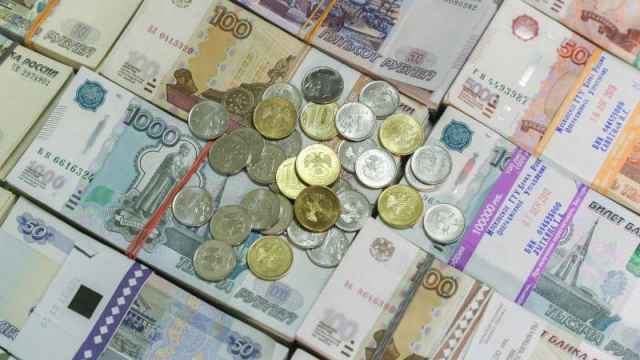Not so long ago, Russia was rolling out the red carpet for Western tech giants. Today, President Vladimir Putin is plotting how to “strangle them.” Once welcomed as symbols of innovation and global connectedness, these companies are now being recast as enemies of the state.
“We need to strangle them … I say this without hesitation,” Putin told business leaders at a Kremlin meeting last week. He was responding to complaints from Iva Technologies CEO Stanislav Iodkovsky, who stated that Russian firms were “losing billions” because foreign companies, such as Zoom and Microsoft, had not completely withdrawn from the market.
Putin’s new plan to punish Western tech companies still operating in Russia is rich with irony. These are the same firms the Kremlin eagerly courted over the past two decades, inviting them to forums, opening sleek offices and touting their presence as proof that Russia was open for business.
Since 2022, software giant Microsoft has steadily withdrawn from Russia, halting license renewals and limiting access to its cloud services. The video conferencing platform Zoom imposed some curbs earlier, blocking companies with state-owned assets in 2021. But it was still fined in 2023 for failing to open a local office in Russia, highlighting the Kremlin’s growing pressure on Western tech firms still operating in the country.
This strategy is not just hypocritical; it is self-defeating. Russia has already done an impressive job of throttling its own IT sector. Decades of corruption, paranoia and kleptocracy have driven out much of the country’s world-class tech talent. The very people capable of building the next great Russian tech company now live in exile, from Dubai to Berlin to Yerevan.
I have met scores of these exiled Russian tech specialists since the war began. Not one plans to return, no matter what the Kremlin promises. Subsidized mortgages, draft exemptions, relocation perks — all of it rings hollow when trust has been shattered.
Take Arkady Volozh, co-founder of Yandex and one of the brightest stars of Russian tech, who publicly denounced the war and renounced his Russian citizenship. Now based in Israel, he is investing vast sums of capital into artificial intelligence, self-driving vehicles and delivery robots, far from the country that once celebrated him.
Or consider Nikolai Storonsky, creator of the U.K.-based fintech app Revolut, now a global success story — but not in Russia. Storonsky also renounced his Russian citizenship.
VKontakte, once dubbed Russia’s answer to Facebook, was effectively taken over by the state in 2014 when its founder, Pavel Durov, was forced out to clear the way for Kremlin-linked oligarchs. Durov, who later launched the encrypted messaging giant Telegram, fled the country and candidly declared Russia “incompatible with internet business.”
These entrepreneurs weren’t driven away by sanctions or foreign interference. They fled because they knew their intellectual property was safer abroad than in the hands of a regime that sees every server as a potential spy tool. Their departures underscore the bleak future of Russian tech when even its top minds walk away, so does its innovation.
The deeper tragedy is that Russia has done a remarkable job of strangling and suffocating its own tech talent. It has produced some of the world’s best engineers, innovators and coders, only to drive them away with broken promises, fear and government control. What remains is a hollowed-out industry where talent is expendable and progress is sacrificed for paranoia.
It was not supposed to be this way. Back in the days of Dmitry Medvedev’s presidency, there was real talk of turning Russia into a major tech hub. In 2010, Medvedev visited Silicon Valley, toured Apple, Google and Cisco, met Steve Jobs, and opened a Twitter account in the hope of igniting a tech boom back home.
Skolkovo was launched as a Russian Silicon Valley, meant to rival Palo Alto. I visited the campus on several occasions, including for a 2014 startup showcase intended to attract much-needed venture capital.
The scene was underwhelming. The sole exhibitor, Kirill Aksenov, was cheerfully demonstrating a voice-controlled robot made not in Russia, but in France. His company, Teledroids, sold the Nao robot for education and research, along with imported vacuum bots. It felt less like a tech incubator and more like a glossy showroom.
Far from transforming Moscow into a new freewheeling, matcha-sipping California, the Potemkin-like Skolkovo was dogged by corruption and inefficiency, leading to battles with the police and tax inspectors. As a result, many of its mentors and startups chose to emigrate.
Now the Kremlin is pivoting from wooing Western firms to bullying them. At the same time, it trots out laughable alternatives like Yotaphone, the state-backed smartphone once hyped by Medvedev as having “Apple worried,” but embraced by no one.
Meanwhile, top officials like Foreign Minister Sergei Lavrov are still photographed brazenly using iPhones and Apple Watches, despite official bans. It is a double act: stage-managed sovereignty for public consumption, while behind the scenes, they rely on the very Western gadgets they claim to reject.
After the invasion of Ukraine, Moscow moved quickly to tighten its grip on the information space by blocking major Western platforms like Instagram, Facebook and Twitter. In their place, the Kremlin promoted domestic substitutes such as RuStore for apps, Yappy for TikTok, Rossgram for Instagram and RuTube for YouTube. Most have struggled to attract users and failed to match the popularity of the originals.
But the damage goes deeper. By attacking the very companies that keep basic IT infrastructure running — email servers, video calls, cloud storage — the Kremlin is not building resilience. It is isolating itself further from the global economy and undermining what remains of its digital future.
Meanwhile, countries like Turkey and the UAE have been snapping up Russian engineers, grateful for the brain drain that Moscow seems determined to accelerate.
Putin’s obsession with control is killing Russia’s chances for genuine innovation. He does not want competition. He wants compliance and subservience. But compliance does not write code. It doesn’t build startups. And it certainly doesn’t create the kind of digital economy that can thrive on anything more than state contracts and propaganda platforms.
The truth of the matter is that Russia’s biggest threat to its tech sector is not Western sanctions. It is its own leadership. The same regime that once begged Western firms to come in now seems determined to burn the bridges they built one server, one platform, one company at a time.
A Message from The Moscow Times:
Dear readers,
We are facing unprecedented challenges. Russia's Prosecutor General's Office has designated The Moscow Times as an "undesirable" organization, criminalizing our work and putting our staff at risk of prosecution. This follows our earlier unjust labeling as a "foreign agent."
These actions are direct attempts to silence independent journalism in Russia. The authorities claim our work "discredits the decisions of the Russian leadership." We see things differently: we strive to provide accurate, unbiased reporting on Russia.
We, the journalists of The Moscow Times, refuse to be silenced. But to continue our work, we need your help.
Your support, no matter how small, makes a world of difference. If you can, please support us monthly starting from just $2. It's quick to set up, and every contribution makes a significant impact.
By supporting The Moscow Times, you're defending open, independent journalism in the face of repression. Thank you for standing with us.
Remind me later.








